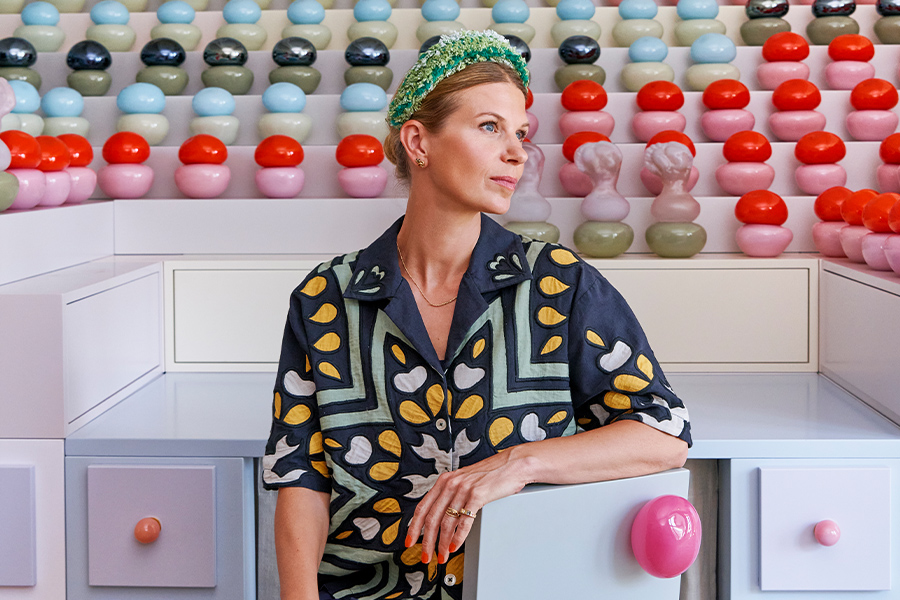The startup industry is second nature to Evan Frank, who has been involved with building projects from the ground up since attending and graduating from the University of Michigan’s Ross School of Business. While studying, he created his own restaurant listing company—in the same vein as Seamless or Grubhub—which marked the beginning of many ventures. He’s worked for boutique technology investment bank Broadview (now part of Jefferies), was a director at technology growth equity fund Kennet Partners, and was the cofounder and CEO of iwantBOX.com (an ecommerce menswear brand), all of which prepared him for his current role at Onefinestay, which allows guests to rent and stay in luxury homes across the globe. “It was probably the lack of travel growing up that made me so fascinated with travel when I was older,” notes Frank, who spent his childhood in the suburbs of New York.
Onefinestay began as an idea between four friends while Frank lived and worked in London, where he moved in 2005. “Our mission was to create a new category of open accommodations; combine the best parts of hotels with staying in really distinctive homes,” explains Frank (the other founders have since left the company). His inspiration came while walking around central London, which was very empty, he says. “Mayfair, St. James, the lights are off and no one’s home except in the hotels,” he recalls. “So, [the question] was really how do we make it as easy for the customer or guest to stay in these homes as it is to book the hotel next door?”
In 2009, the brand tailored to a local footprint debuted in the hopes of tackling an untapped area in the market. Today, it boasts a curated portfolio of 2,500 homes in 13 destinations—in the past year alone, the company has launched in Miami, Rome, the Hamptons, Edinburgh, the French Riviera, and Southern California. The recent growth is in part thanks to the $240 million acquisition by AccorHotels in April of last year.
Frank moved back to the U.S. in 2012, where he still visits potential residences to join the program (along with his sales team). “We don’t take any home,” he says. Cluttered or under-furnished houses are passed on and all must meet the company’s hospitality standards, though there has been rare occasions when they have furnished prospects to “a boutique hotel standard,” he notes. Ultimately, they look for places that “represent an idealized version of the city they’re in. We don’t necessarily have a house style, but there does need to be a point of view,” he says. “We view our job now—although it wasn’t always this clear—as setting the stage for a wonderful guest experience; for a self-actualizing guest experience, if possible.” Two of his favorites: a townhouse with soaring ceilings and industrial décor in London’s Clerkenwell neighborhood (where the Onefinestay office is located and where the company started in a first-floor apartment); and an “ornately decorated apartment with beautiful floors,” in Paris’ Saint-Germain-des-Prés.
Though it’s difficult to not draw comparisons to Airbnb, the difference is distinct. “They’ve done a very good job of blurring the line between a platform and an operator, but they’re not an operator; they’re a platform,” he explains. “We’re an operator. We’re ultimately taking accountability for the customer experience.” The 300-person team at Onefinestay manages property calendars, sets pricing, handles in-between cleanings, and provides linens and toiletries “to make our homeowners experience turnkey,” he says, à la a hotel. For customers, that equates to a reservations team and 24/7 assistance, an iPhone with an app for the length of the stay, a welcome package, airport transfers, grocery service, and even childcare options.
As the brand gains awareness, especially in major cities, they have found a niche: families traveling together who need or crave more than a hotel suite, and those who are renovating their homes or need accommodations during a crisis like a flood. Their audience does tend to be older because “it’s not cheap, and these places are typically not very small,” Frank notes. But at its core, the multifunctional company is “about travel, about history, about open life.”


